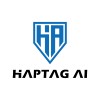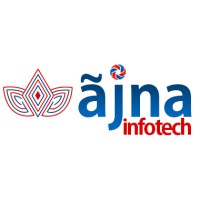

HapTag AI
AI Engineer
⭐ - Featured Role | Apply direct with Data Freelance Hub
This role is for an AI Engineer specializing in log intelligence and data analytics, with a contract length of "unknown," offering a pay rate of "unknown." Key skills include Python, PyTorch, TensorFlow, anomaly detection, and big data technologies.
🌎 - Country
United States
💱 - Currency
$ USD
-
💰 - Day rate
Unknown
-
🗓️ - Date
October 2, 2025
🕒 - Duration
Unknown
-
🏝️ - Location
Unknown
-
📄 - Contract
Unknown
-
🔒 - Security
Unknown
-
📍 - Location detailed
United States
-
🧠 - Skills detailed
#TensorFlow #Monitoring #Python #BERT #SQL (Structured Query Language) #Elasticsearch #Docker #Apache Spark #Transformers #Pandas #PyTorch #REST API #REST (Representational State Transfer) #Matplotlib #AI (Artificial Intelligence) #Anomaly Detection #API (Application Programming Interface) #Spark (Apache Spark) #Big Data #Kafka (Apache Kafka) #Visualization #Observability #NLP (Natural Language Processing) #ML (Machine Learning) #Plotly #OpenSearch #Databases #"ETL (Extract #Transform #Load)" #Kubernetes #Libraries #Indexing
Role description
Role Overview
We are seeking an AI Engineer specializing in log intelligence and data analytics to transform large-scale system logs into actionable insights. This role combines AI encoding and decoding models, machine learning, anomaly detection, and data-driven analysis with big data and streaming capabilities to improve system reliability, detect abnormal patterns, and support operational decision-making.
Key Responsibilities
• Hands-on experience with PyTorch or TensorFlow.
• Strong background in sequence modeling (e.g., LSTMs, Transformers).
• Applied knowledge/deep understanding of BERT, GPT, or other transformer-based models for log/NLP tasks.
• Familiarity with anomaly detection methods (supervised, unsupervised, and semi-supervised).
• Define and track evaluation metrics (precision, recall, AUC, F1) to assess model performance.
• Create dashboards and reports to communicate trends, anomalies, and insights to stakeholders.
• Integrate AI models into monitoring workflows and observability platforms.
Qualifications
• Proficiency in Python and ML frameworks (PyTorch, TensorFlow, Scikit-learn).
• Experience with log data, anomaly detection, or time-series modeling.
• Strong background in data analytics (Pandas, SQL, visualization libraries such as Matplotlib/Plotly).
• Familiarity with big data or streaming technologies (e.g., Apache Spark, Kafka, Flink, Dask).
• Experience with REST API integration to connect models and analytics with applications.
• Understanding of observability concepts (logs, metrics, traces).
Nice-to-Have
• Experience with transformer-based models (BERT, GPT) for log/text analysis.
• LLM related experience
• Exposure to MLOps practices (Docker, Kubernetes, CI/CD for ML pipelines).
• Knowledge of time-series databases (e.g., TimescaleDB, InfluxDB) or log indexing tools (Elasticsearch, OpenSearch).
Who You Are
• Analytical mindset with the ability to connect technical results to real-world system issues.
• Strong communication skills to explain complex insights to diverse audiences.
• Proactive and curious approach to solving problems at scale.
• Collaborative attitude, comfortable working with cross-functional teams.
• Self-starter with the ability to work independently, prioritize and get things done.
• Must be able to multitask and manage competing priorities; thrive in a fast-paced environment
Role Overview
We are seeking an AI Engineer specializing in log intelligence and data analytics to transform large-scale system logs into actionable insights. This role combines AI encoding and decoding models, machine learning, anomaly detection, and data-driven analysis with big data and streaming capabilities to improve system reliability, detect abnormal patterns, and support operational decision-making.
Key Responsibilities
• Hands-on experience with PyTorch or TensorFlow.
• Strong background in sequence modeling (e.g., LSTMs, Transformers).
• Applied knowledge/deep understanding of BERT, GPT, or other transformer-based models for log/NLP tasks.
• Familiarity with anomaly detection methods (supervised, unsupervised, and semi-supervised).
• Define and track evaluation metrics (precision, recall, AUC, F1) to assess model performance.
• Create dashboards and reports to communicate trends, anomalies, and insights to stakeholders.
• Integrate AI models into monitoring workflows and observability platforms.
Qualifications
• Proficiency in Python and ML frameworks (PyTorch, TensorFlow, Scikit-learn).
• Experience with log data, anomaly detection, or time-series modeling.
• Strong background in data analytics (Pandas, SQL, visualization libraries such as Matplotlib/Plotly).
• Familiarity with big data or streaming technologies (e.g., Apache Spark, Kafka, Flink, Dask).
• Experience with REST API integration to connect models and analytics with applications.
• Understanding of observability concepts (logs, metrics, traces).
Nice-to-Have
• Experience with transformer-based models (BERT, GPT) for log/text analysis.
• LLM related experience
• Exposure to MLOps practices (Docker, Kubernetes, CI/CD for ML pipelines).
• Knowledge of time-series databases (e.g., TimescaleDB, InfluxDB) or log indexing tools (Elasticsearch, OpenSearch).
Who You Are
• Analytical mindset with the ability to connect technical results to real-world system issues.
• Strong communication skills to explain complex insights to diverse audiences.
• Proactive and curious approach to solving problems at scale.
• Collaborative attitude, comfortable working with cross-functional teams.
• Self-starter with the ability to work independently, prioritize and get things done.
• Must be able to multitask and manage competing priorities; thrive in a fast-paced environment





